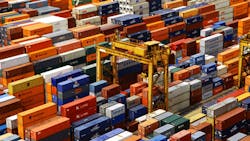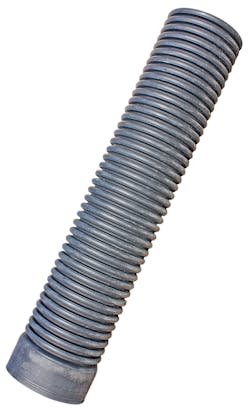Are You in Danger of an Export Control Violation?
Ever since the 1976 enactment of the Arms Export Control Act (AECA) and the International Traffic in Arms Regulations (ITAR), manufacturers have had to avoid selling items listed on the U.S. munitions list to non- U.S. parties unless authorized by the Department of State or by special exemption.
But a 1999 increase in enforcement efforts and the presidential executive order on export control reform issued on March 8, 2013 mean that manufacturers of munitions and dual use items have a lot more to worry about.
These dual use items fall into broad categories:
• Nuclear
• Materials, Chemicals, Microorganisms and Toxins
• Materials processing
• Electronics
• Computers
• Telecommunications and Information Security
• Lasers and Sensors
• Navigation and Avionics
• Marine
• Propulsion Systems, Space Vehicles and Related Equipment
Anything from a life vest to an oscilloscope can be affected by export control regulation, and exporting them without the right license to do so can put an organization at risk of fines and carry legal repercussions for corporate officers.
Something as simple as tubes or composite structure tubes can fall under export control regulation if they have an inside diameter of between 75 mm and 400 mm and are made with any of a number of "fibrous or filamentary materials" or with carbon prepreg materials.
A gasket can fall under export control regulations if they consist of more than 50% by weight of any of a number of materials deemed appropriate for use in aerospace. And the situation is complex enough that some degree of automation through an enterprise application like enterprise resource planning (ERP) is essential.
Complex Situation
The complexity faced by manufacturers of defense and mixed use products is significant, starting with multiple regulatory documents. The Commerce Control List (CCL), and the United States Munitions List (USML) both mention different items which must be controlled.
To confuse matters more, different agencies are responsible for different types of application procedures; the Department of Commerce for the CCL items and the Department of State controlling the U.S.ML items. Each agency has different ways of wording things, and different definitions for the same words.
Manufacturers need to keep abreast of multiple denied party lists, or Specially Designated Nationals and Blocked Persons Lists,and these are issued by various governmental departments including the Department of the Treasury – all in an environment where it is hard to understand why the government wants to restrict particular items.
Many aerospace and defense companies are relying on a manual process for compliance. Some manufacturers of dual use items may not know which items they manufacture are affected by the regulations. Lack of export control tools may be putting these industries at risk or simply preventing them from doing business internationally to the degree they would like.
Because much of the data required for compliance already exists in various places and modules of an ERP system, ERP with export control functionality combined with external lists of CCL items, U.S.ML items and blocked persons seems a natural way to solve the compliance problem. Export control functionality must be able to quickly and efficiently marshal and combine data from ERP with external regulatory data to ensure compliance as orders and other transactions are processed.
U.S. regulations apply equally to overseas companies that purchase U.S. parts or materials for incorporation into their own products, so an ERP application must also facilitate sharing compliance information with overseas partners.
ERP for Export Control
Because export control compliance involves information from so many parts of the business, affected organizations will need a well-integrated application suite rather than a collection of point solutions. It will also become more and more important to ensure an ERP solution has functionality specifically designed for export control.
Without a fully integrated application suite where data can flow seamlessly between different functions like supply chain management, manufacturing, engineering and customer relationship management (CRM), it is difficult to know which products, parts or transactions may put you in jeopardy. At a minimum, an enterprise application must be comprehensive enough to help you answer some basic questions:
• In the parts catalog, which set of regulations does each part fall under? Is a part regulated by a control list rating or the U.S. munitions list rating, and if so, which rating and therefore which controls apply?
• Are you sending the items to an overseas partner or customer who is operating under warehousing and distribution agreements, which would then resell them to an approved sales territory?
• Are the particular orders that you are accepting and committing to in a contract subject to these controls? If they are on the list, do you have a license? If you don't have a license, you shouldn’t be exporting it. If you do have a license, are you actually complying with the terms of that license?
Export control functionality, as a component of an ERP package, can leverage data already in the system to:
• Identify a part as a control part right in the part catalog.
• Check for controlled parts in the bill of material of what you are just delivering.
• Prompt you when you need a license, offer information on the type of license required and check on license availability. If you don’t have the license available at the moment, it can determine if you can still proceed to the next stage in processing but hold delivery until you actually get the license in place.
• Compare order quantity or dollar value for licensed items against available licenses and verify there is sufficient unused cover after netting of consumed coverage by previous orders. Licenses typically cover limited quantities or limited dollar values or specific end usages to specific end users.
What about other countries' requirements?
The U.S. is not the only country in the world with export controls. U.S. exporters often have overseas divisions who might be working in the UK, other countries in the European Union, Australia and other countries worldwide, each with export controls requirements. ERP export control functionality ought to be flexible enough to facilitate compliance with these other regulatory schema, including:
• The Nuclear Suppliers Group
• UN Security Council Sanctions Committees
• The Wassenaar Arrangement
• Australia Group
• The Missile Technology Control Regime
• Zangger Committee
Conclusion
Export control regulations are changing rapidly, and will continue to do so.
Keeping abreast of regulation on each and every order and transaction is not a process that can be effectively handled manually – at least not on a level that ought to inspire confidence from management.
Manufacturers and contractors involved in the aerospace and defense industries as well as other industries dealing with materials and equipment of strategic importance will need to rely on more automated systems to they can profitably and efficiently meet customer demands without exposing themselves to legal repercussions.
ERP software that is designed specifically for export control may offer the most direct route to an export control process that inspires confidence while protecting the company and its directors.
Kevin Deal is vice president for aerospace and defense at IFS North America.

